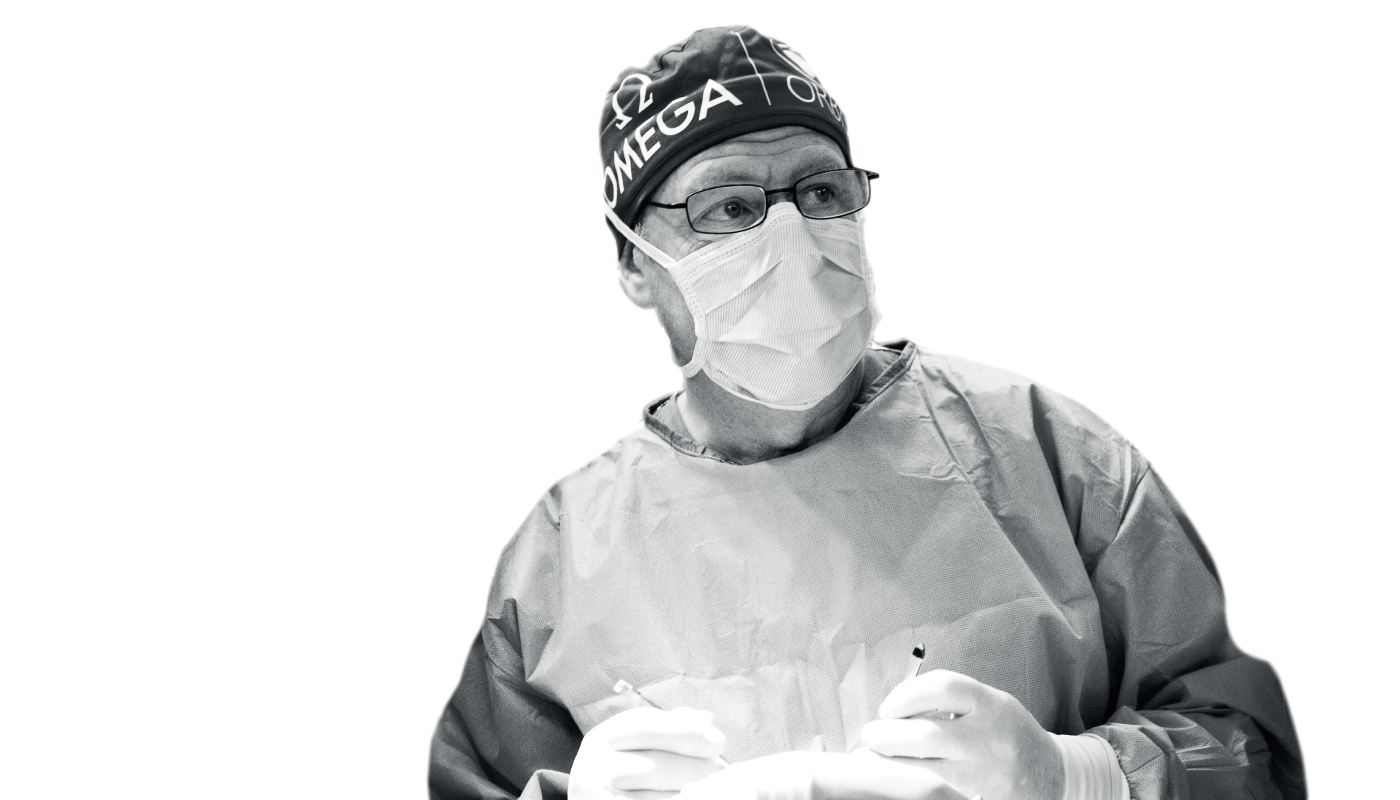
Over the past year, I’ve been involved in training ophthalmic surgeons from Cameroon with the help of Orbis’s virtual training software, Cybersight. A key enabler of this effort? The more reliable, faster broadband that is now almost ubiquitous. You may take this quiet revolution for granted when watching your latest Netflix favorite – but consider how important it is for me to see a clear picture during a training session. Imagine how much better the experience is for all concerned when we can easily interact in real time...
Working with a Cameroonian surgeon, Ted Grimbert Afetane Evina, I can see what he sees through the microscope and talk the team through the procedure in real time. And it’s almost like being in the same room – despite being 6,000 miles away. That said, there are differences to working in the same location – for one, I have to think ahead a lot more. And it can be terrifying at times! The fact that I had previously met the surgical team face-to-face definitely helped though I’ll admit we’ve had to overcome a bit of a language barrier; Evina’s first language is French and my surgical French is not brilliant...
The Cameroon team has a phaco machine at their hospital and I’ve been able to teach Evina a new technique that he was keen to learn. We are trying to help him transition from a technique called “divide and conquer” to a technique called “stop and chop.” They are different methods of dividing the hard nucleus of the lens into smaller fragments. He routinely operates on patients, so I am just building on his technique. All in all, it has been a really interesting and fun experience.
Though my experiences are proof that virtual training can work, I believe that teaching the basics of this method wouldn’t work remotely. To learn properly, I would advise trainees to first learn the basics live, and do some simulation training before proceeding to virtual real-life surgery training. Even something as simple as how you hold an instrument in your hand can make a massive difference to how you manipulate it during surgery. Using virtual training, I can’t take that instrument and place it properly in the trainee’s hand, and I can’t guide them, other than by showing them my own hand on the screen. Even putting a stitch in a tissue is much more difficult to see and supervise in detail remotely.
But for those surgeons who already have the basics under their belts, I think there are many nuances and techniques that can be taught much more easily remotely.
There is a huge appetite for virtual training right now (if I were cynical, I’d say that’s because it’s been the only kind of training available for some...). People have realised the clear benefits; you don’t have to travel, so it saves huge amounts of time and money. And it gives you instant access to techniques and methods from around the world. People suddenly have a way to broaden their (surgical) horizons without leaving the comfort of their own practice.
Training schemes in the UK during the pandemic have suffered without access to live surgery and clinics, and online teaching has allowed trainees to continue their learning, rather than putting it on hold for a year. A couple of weeks ago, a group of 10 trainees were doing simulation training on model eyes at the Royal College of Ophthalmologists in London, and – at the same time – I was online supervising a couple of trainees who couldn’t get to the session, so they were at home, with some portable microscopes set up in their front room. People at the college and I could interact with the trainees who were in the building, but also with the two students connecting remotely. It was a pilot to see whether that might work as a way of teaching. It truly does open up new possibilities. Previously, such a session would have required two days of travel (and an overnight stay). But joining the session online is as simple as switching on the microscope.
Consider another benefit: less time traveling means more time practicing newly learned skills; as I always say to my trainees: “Those of you who practice the most will be the best surgeons.”
My message to teams around the world: keep going! Hopefully, the Flying Eye Hospital will take off again soon, and we’ll get back to something a bit more akin to normal. Everybody who joins Orbis has a deep-seated belief that sight is super precious. We know that access to eye care is variable around the world, and we are trying to make it more equitable, especially for children and disadvantaged groups – and donations allow us to do this. Certainly, Cybersight from Orbis has given more people access to training during lockdown than would have otherwise been possible. And I think that’s really important.
For more information about Orbis visit www.orbis.org
